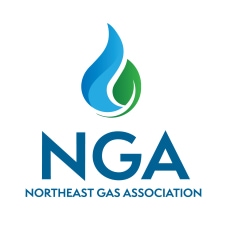Renewable Gas
Renewable Natural Gas (RNG), also known as bio-methane or biogas, is pipeline quality gas derived from biomass that is fully interchangeable with natural gas.
The future natural gas network could include renewable gas from dairy farms,
waste water treatment plants, landfills, wood waste and food waste plants.
About RNG
In the Northeast, there is growing interest and initiatives among natural gas utilities toward implementing RNG.
In September 2019, NGA and GTI released a report called: "Interconnect Guide for Renewable Natural Gas in New York State." The report was sponsored by and developed in coordination with several New York State natural gas utilities. While developed for New York State, this report provides a guideline for RNG pipeline interconnections that will be applicable and of value throughout the U.S. and Canada.
The guidance document provides a framework and technical guidance by which all parties - including project developers and the local gas utility - can work together utilizing common core principles and a rigorous technical framework to facilitate maximizing the acceptance and introduction of RNG into the natural gas pipeline network. The report can be found in a link at the bottom of the page.
What are potential sources of Renewable Gas?
The sources of feedstock are wastewater treatment plants, landfills, municipal solid waste (including an organic fraction of waste, i.e., food waste), wood residues, agricultural residues and energy crops. There are other non-traditional sources that can be utilized as well, mainly from specific industrial processes; a brewery is a good example.
The U.S. Department of Energy notes that "like conventional natural gas, RNG can be used as a transportation fuel in the form of compressed natural gas (CNG) or liquefied natural gas (LNG). RNG qualifies as an advanced biofuel under the Renewable Fuel Standard."
The Gas Technology Institute (GTI) notes that "Bio-methane and liquid biofuels provide an opportunity to supply affordable, clean, domestically-sourced energy to U.S. and global energy customers. These renewable energy sources can help companies comply with renewable portfolio standard (RPS) requirements, low carbon fuel standards, and other policy-driven efforts intended to promote the use of renewable and sustainable energy resources for power generation, transportation, and other end use market applications."
For Further Information:
- NGA and GTI Report: "Interconnect Guide for Renewable Natural Gas in New York State," 9-19 [pdf]
- National Grid white paper (https://www9.nationalgridus.com/non_html/NG_renewable_WP.pdf)
- U.S. Dept. of Energy transportation page (http://www.afdc.energy.gov/fuels/natural_gas_renewable.html)
- GTI (https://www.gti.energy/expanding-production-and-use-of-renewable-natural-gas-rng/)
- American Biogas Council (https://americanbiogascouncil.org/)
- Renewable Natural Gas Coalition (http://www.rngcoalition.com/)



